- After an upbeat January, investors should brace for sharp swings in the weeks ahead as the new month kicks off.
- February is expected to be a difficult month on Wall Street amid several major market-moving events.
- All eyes will be on the upcoming U.S. jobs report and CPI inflation data, as well as more corporate earnings.
- Navigate this earnings season at a glance with ProTips - now on sale for up to 50% off!
After a relatively strong start to the year in January, history says investors should brace for fresh turmoil in February, which has a reputation for being one of the worst months of the year for the stock market.
Since 1945, the S&P 500 has suffered an average loss of around -0.3% in February.
That compares to an average gain of roughly +0.8% for the other months of the calendar. The benchmark index fell -2.6% last February as investors worried about the Federal Reserve’s aggressive rate hike plans.
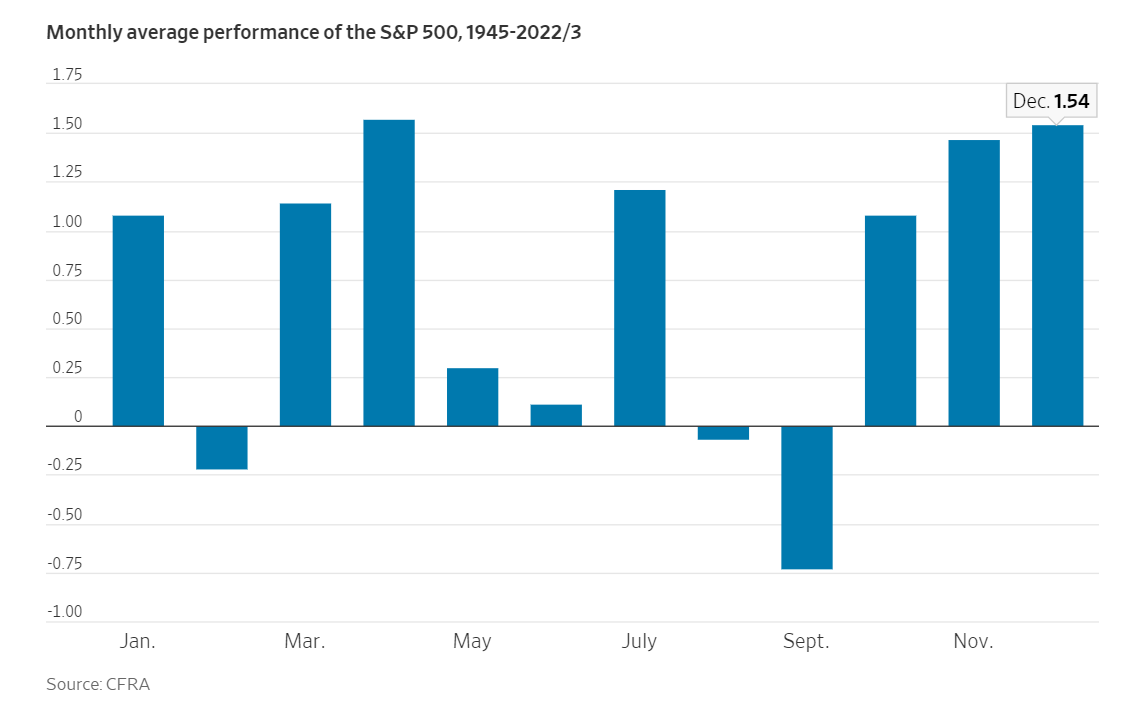
Indeed, the Fed is still the main driver of investor sentiments and stock price action, with many speculating recently about when the U.S. central bank might start cutting interest rates.
As of this writing, after today's surprisingly above-estimate jobs report, which showed that the U.S. economy had added 353,000 jobs against an estimate of 187,000 in January, financial markets saw about a 65% chance of the Fed leaving rates at current levels in March, compared to a 35% probability of a quarter-point rate cut.
Speaking at the post-meeting press conference on Wednesday, Fed Chair Jerome Powell noted the labor market and economic growth may need to slow to ultimately achieve the Fed’s goal of bringing inflation back down to its 2% target.
"The executive summary would be growth is solid to strong ... 3.7% unemployment indicates the labor market is strong," the Fed chief said. "Let's be honest, this is a good economy," he added.
Looking out to May, investors believe there is a roughly 90% chance rates are lower by the end of that meeting, as per the Investing.com Fed Rate Monitor Tool.
With investors continuing to gauge the outlook for interest rates, inflation, and the economy, a lot will be on the line in the month ahead.
U.S. CPI Report: Tuesday, February 13
The U.S. government will release the January CPI report on Tuesday, February 13, at 8:30AM ET and the numbers will likely show that prices continue to increase at a pace nearly twice the central bank’s target.
While no official forecasts have been set yet, expectations for annual CPI range from an increase of 3.2% to 3.6%, compared to a 3.4% annual pace in December.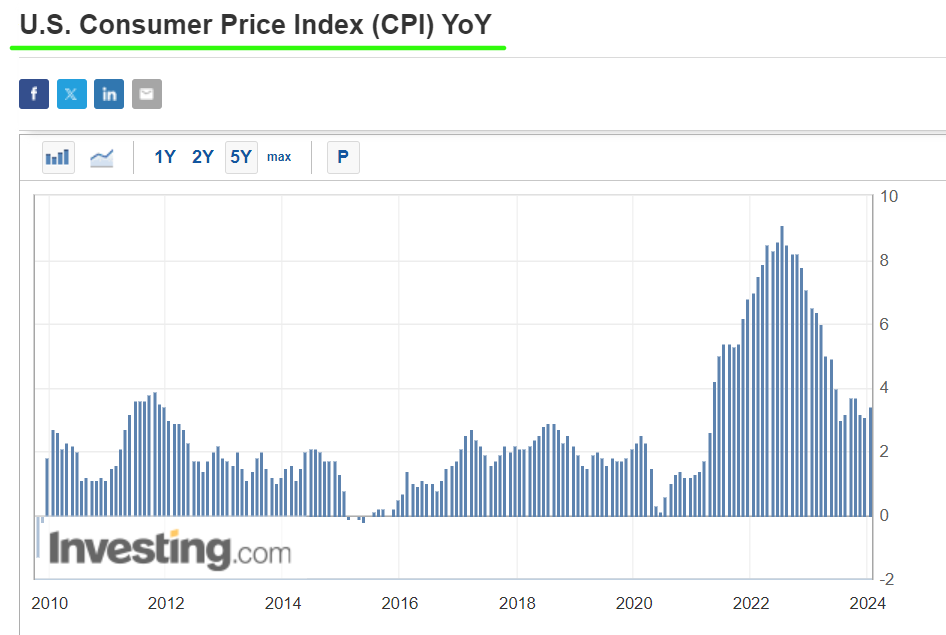
The closely watched consumer price index has come down substantially since the summer of 2022, when it peaked at a four-decade high of 9.1%, however, inflation is still rising far more quickly than the 2% rate the Fed considers healthy.
Meanwhile, estimates for the year-on-year core CPI figure - which does not include food and energy prices - center around 3.7%-4.0%, compared to December’s 3.9% reading.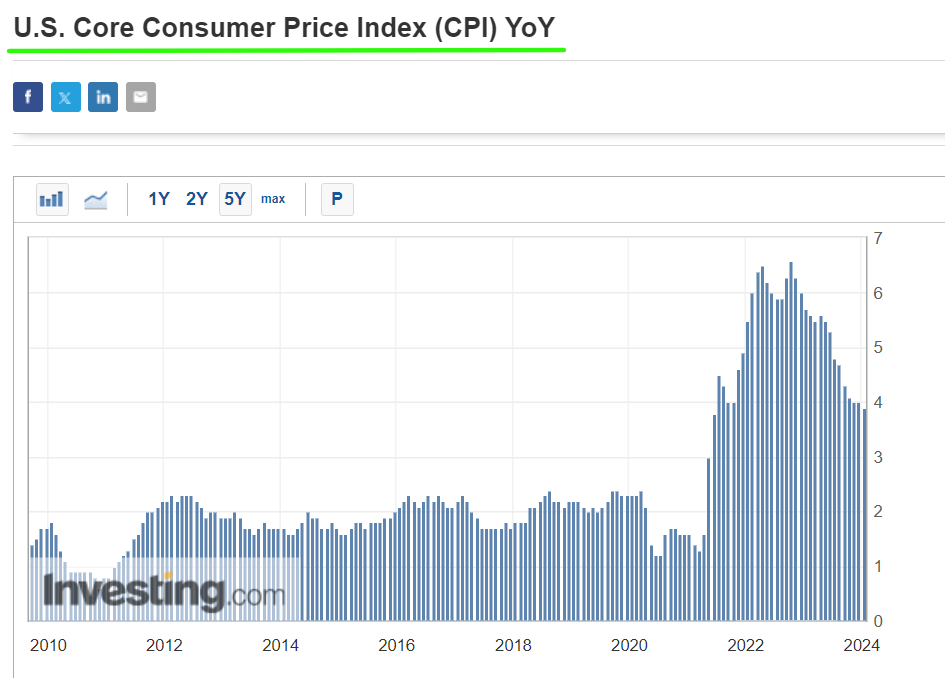
The underlying core figure is closely watched by Fed officials who believe that it provides a more accurate assessment of the future direction of inflation.
Prediction: I believe the numbers will likely show that neither inflation nor core inflation is falling fast enough for the Fed to pause its inflation-fighting efforts.
During Wednesday’s post-FOMC meeting press conference, Powell said that rate cuts would not be appropriate until there is "greater confidence that inflation is moving" towards the central bank's 2% target.
"Inflation is still too high. Ongoing progress in bringing it down is not assured," Powell warned.
Therefore, I hold the opinion that the current environment is not indicative of a Fed that will need to pivot on policy and there is still a long way to go before policymakers are ready to declare mission accomplished on the inflation front.
Q4 Earnings Season Continues
Investors await a flood of earnings in February as Wall Street’s fourth quarter reporting season continues.
Three of the so-called ‘Magnificent Seven’ tech stocks reported their results last night, with Facebook-parent Meta Platforms (NASDAQ:META), and e-commerce giant Amazon (NASDAQ:AMZN) delivering blowout earnings and guidance, while iPhone maker Apple (NASDAQ:AAPL) provided an outlook for the March quarter that disappointed investors.
Looking out to next week, some of the notable companies reporting results include Walt Disney (NYSE:DIS), Caterpillar (NYSE:CAT), McDonald’s Corporation (NYSE:MCD), Pepsico (NASDAQ:PEP), Eli Lilly (NYSE:LLY), Ford (NYSE:F), Uber (NYSE:UBER), Palantir (NYSE:PLTR), Snap, Pinterest (NYSE:PINS), and PayPal (NASDAQ:PYPL).
The following week sees high-profile names like Coca-Cola (NYSE:KO), Airbnb, Shopify (NYSE:SHOP), Coinbase (NASDAQ:COIN), DraftKings (NASDAQ:DKNG), Roku (NASDAQ:ROKU), Cisco (NASDAQ:CSCO), Arista Networks (NYSE:ANET), and Occidental Petroleum (NYSE:OXY) report earnings.
Retailers then take center stage in the second half of the month when heavyweights Walmart (NYSE:WMT), Home Depot (NYSE:HD), Target, Lowe’s, TJX Companies (NYSE:TJX), Macy’s, Best Buy (NYSE:BBY), and Costco (NASDAQ:COST) deliver their latest financial results.
Another key name to watch will be Nvidia (NASDAQ:NVDA), whose Q4 results are scheduled to come out after the closing bell on Wednesday, February 21. Shares of the Santa Clara, California-based tech giant have surged 222% over the past year, rising alongside spiking interest in artificial intelligence (AI) advancements.
It is worth mentioning that Nvidia shares appear to be extremely overvalued at the moment, as per the quantitative models in InvestingPro, which point to a potential downside of -16% from their current market value.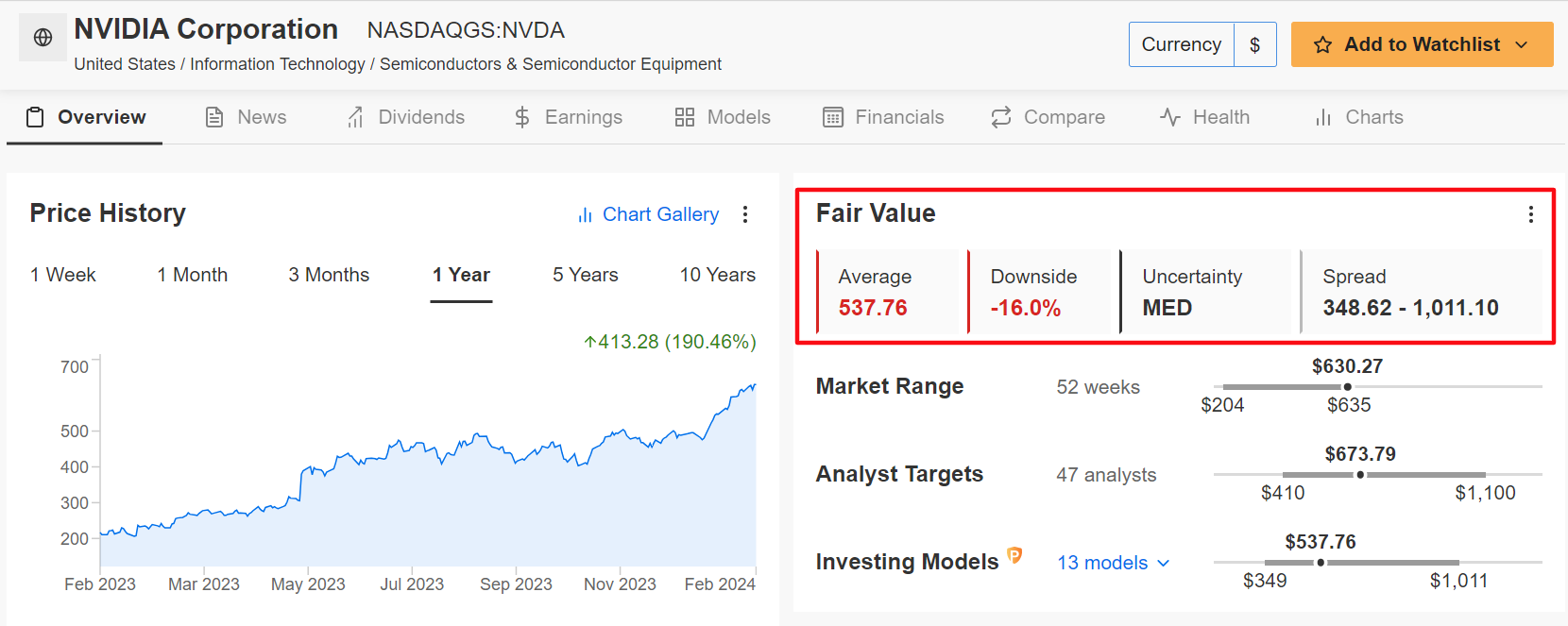
Source: InvestingPro
The fourth-quarter earnings season is nearly halfway through. Of the 208 S&P 500 companies that have reported through Friday, about 80% have topped expectations, according to FactSet data.
In a typical quarter, 76% of S&P 500 companies beat estimates.
What To Do Now
While I am currently long on the S&P 500, and the Nasdaq 100 via the SPDR S&P 500 ETF (SPY), and the Invesco QQQ Trust ETF (QQQ), I have been cautious about making new purchases as we are entering one of the weakest months of the year historically.
Therefore, a pullback in February would not be surprising in my view as the recent run to record highs will be hard to sustain amid the current backdrop.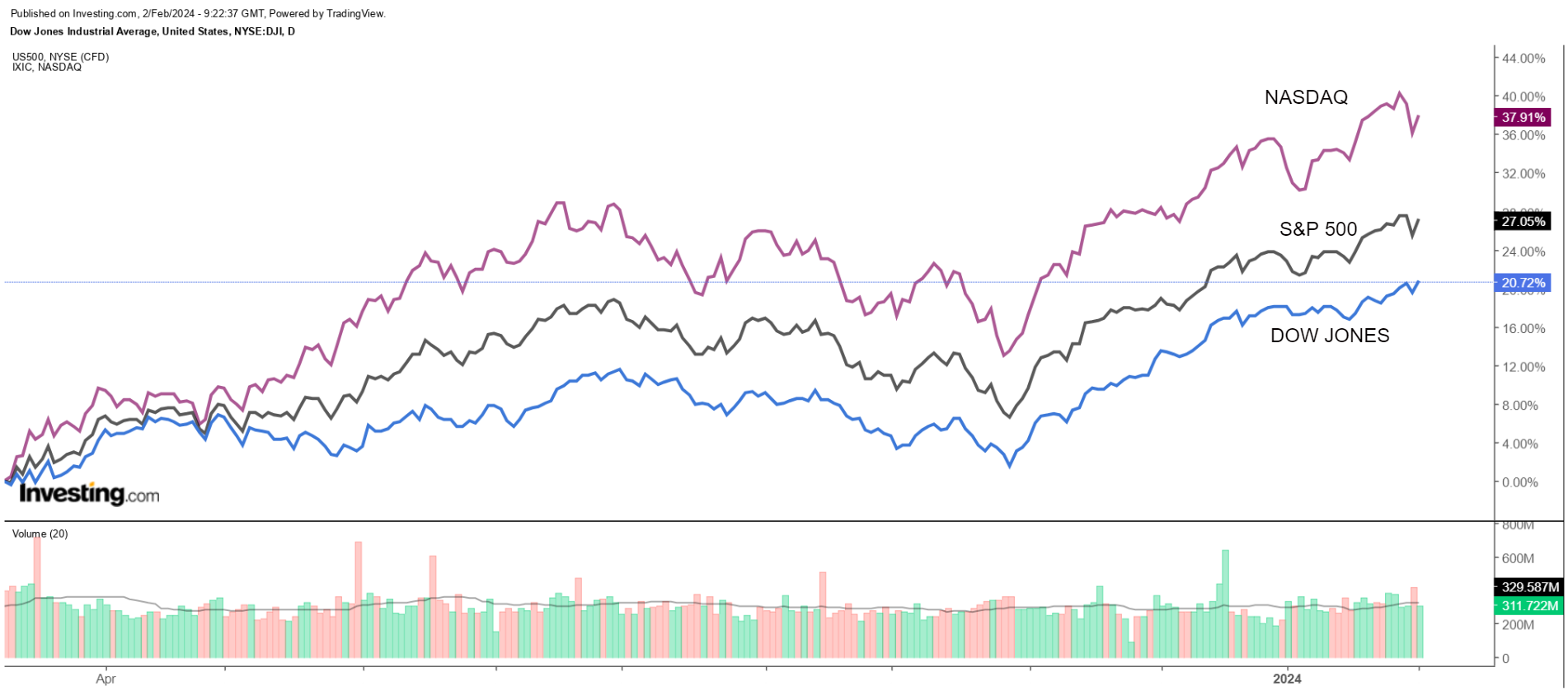
Overall, it’s important to remain patient and alert to opportunity. Not buying extended stocks, and not getting too concentrated in a particular company or sector are still important.
***
Be sure to check out InvestingPro to stay in sync with the market trend and what it means for your trading decisions.
InvestingPro empowers investors to make informed decisions by providing a comprehensive analysis of undervalued stocks with the potential for significant upside in the market.
Join now for up to 50% off on our Pro and Pro+ subscription plans and never miss another bull market by not knowing which stocks to buy!
Don't forget your free gift! Use coupon code OAPRO1 at checkout to claim an extra 10% off on the Pro yearly plan, and OAPRO2 for an extra 10% discount on the by-yearly plan.
Disclosure: I regularly rebalance my portfolio of individual stocks and ETFs based on ongoing risk assessment of both the macroeconomic environment and companies' financials.
The views discussed in this article are solely the opinion of the author and should not be taken as investment advice.

